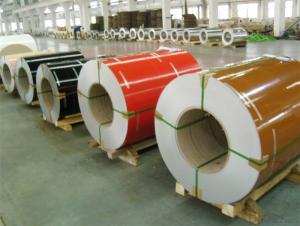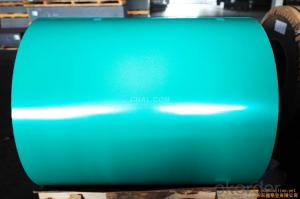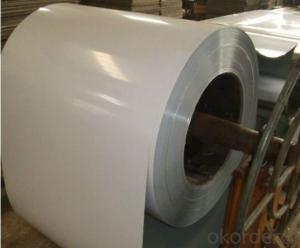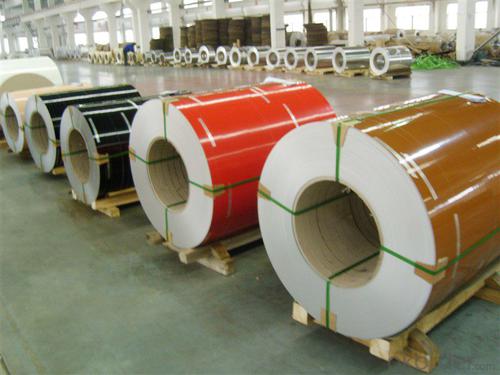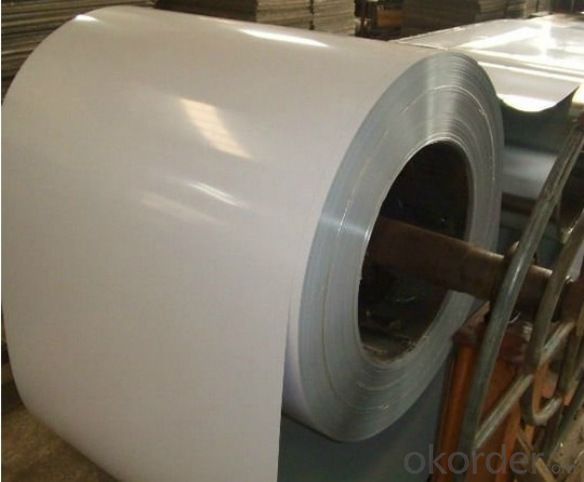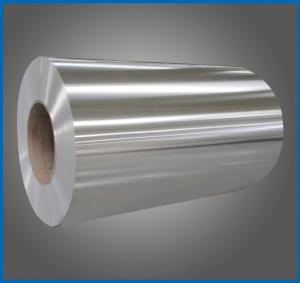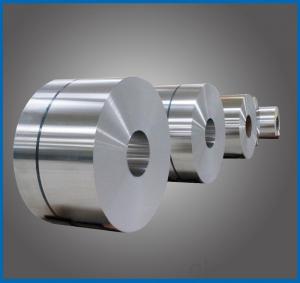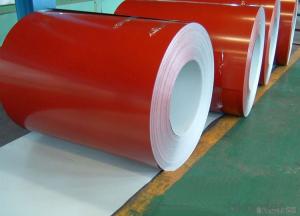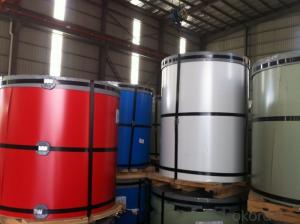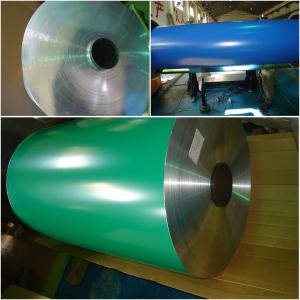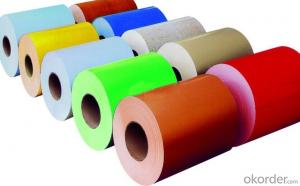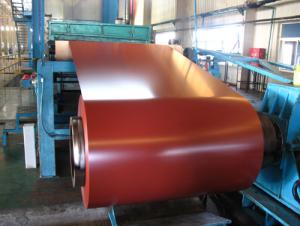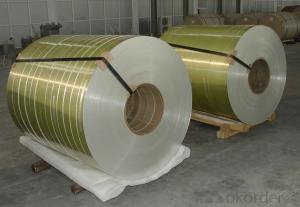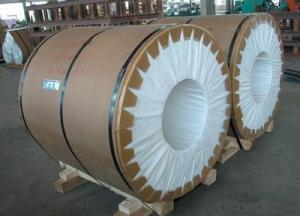Painted Color Aluminum Coil Mirror Aluminum Anticorrosion
- Loading Port:
- Shanghai
- Payment Terms:
- TT or LC
- Min Order Qty:
- 8 m.t.
- Supply Capability:
- 5000 m.t./month
OKorder Service Pledge
OKorder Financial Service
You Might Also Like
Specification
Structure of Painted Color Aluminum Coil Mirror Aluminum Anticorrosion Description
Coated aluminum coil/sheet are of a wide range of colors, which gives wonderful appearance no matter in residential and commercial constructions of great exhibition centers.
The coated aluminum coil/sheet have been widely used in the fields of construction and decoration( garage doors, ceiling etc.), electronic appliances, lighting decoration, air-condition air pipes, sandwich panels and drainages etc.
Main Features of Painted Color Aluminum Coil Mirror Aluminum Anticorrosion :
1) Perfect weather ability, high strength, no special maintenance
2) Convenient construction, short working time
3) Excellent machining heat insulation, sound insulation property and perfect fireproof performance
4) High plasticity, good impact resistance, quakeproof performance and reducing buildings load
5) Goods smoothness, lightweight and rigid, beautiful and cheap
6) Various colors available
7) Simple machining equipments, processing in spot.
Image of Painted Color Aluminum Coil Mirror Aluminum Anticorrosion:
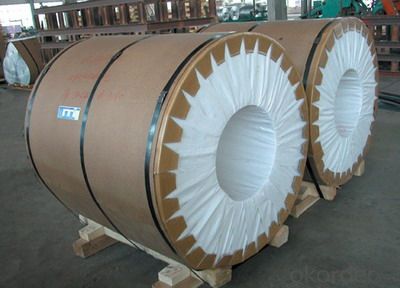
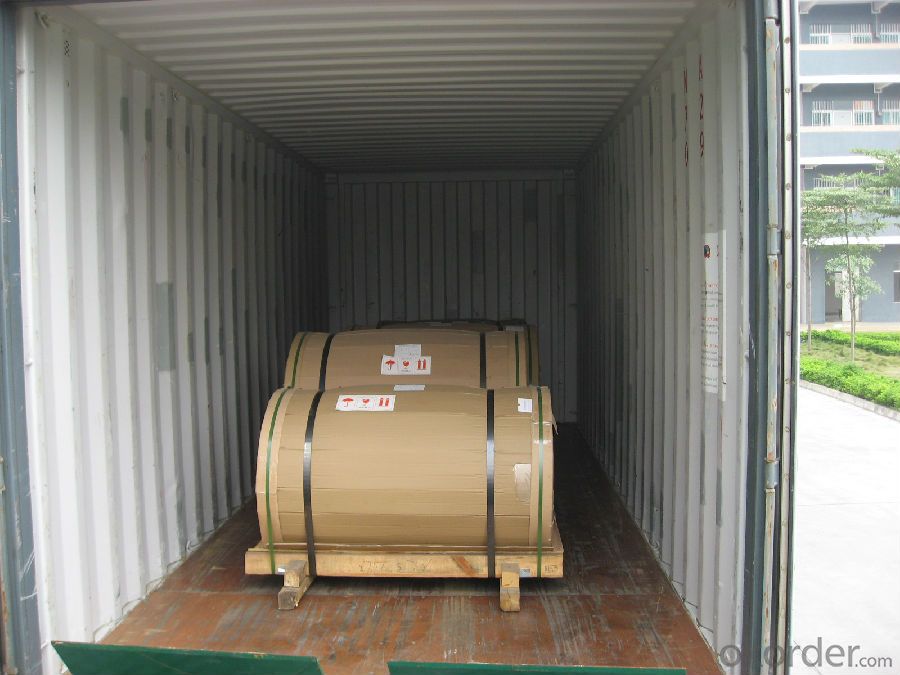
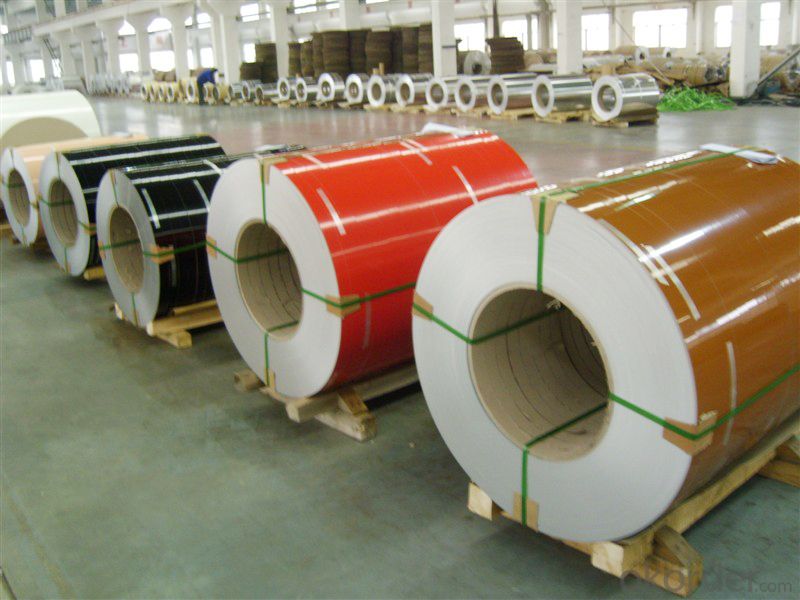
Aluminium Coated Coil Specification:
Product Name | Aluminum Coil |
Alloy | A1100,A3003,A1050,A8011,A3105,A5005 etc |
Thickness | 0.022mm to 3.0 mm |
Width | Standard width:1240mm; 1200mm |
All width: 30mm - 1600mm | |
Diameter | out dia:1200mm |
Interior dia: 405mm,505mm | |
Weight | 2.5 T/coil,3.0 T/coil |
Coating | PE,PVDF,ACRYLIC |
Surface | Embossed, mill finish, coated; aluminum gutter coil |
Color | AS to all RAL color |
Gloss | 10-90%(EN ISO-2813:1994) |
Coating Thickness | PE: more than 18 micron |
PVDF: more than 25 micron | |
Coating Hardness (pencil resistance) | More than 2h |
Coating adhesion | 5J(EN ISO-2409:1994) |
Impact Resistance | No peeling or cracking(50 kg/cm,ASTMD-2794:1993) |
Flexibility (T-bend) | 2T |
MEK resistance | More than 100 |
FAQ of AA5052 Aluminium Coated Coil:
a.What is monthly capacity
---CNBM is one stated own company and our monthly capacity is about 2000tons.
b. Now which countries do you export your goods?
---Now we export to South East Asia,Africa, North America,South America ect.
- Q: Please tell me the the size of the piece of aluminum that you give the weight messurements.
- This Site Might Help You. RE: How much does Pure Aluminum weight, and what is its density or durability? Please tell me the the size of the piece of aluminum that you give the weight messurements.
- Q: What are the different thickness options for aluminum coils?
- Various industrial and commercial applications can be catered to with a wide range of thickness options for aluminum coils. The thickness of these coils is typically measured in gauge or millimeters (mm). Aluminum coils are available in different thickness options: 1. Thin Gauge: Coils with a thin gauge usually have a thickness ranging from 0.15 mm to 0.4 mm. These coils are commonly utilized in applications that necessitate lightweight and flexible materials, such as packaging, electrical wiring, and insulation. 2. Standard Gauge: Coils with a standard gauge have thicknesses ranging from 0.4 mm to 2.5 mm. They find widespread use in industries like construction, automotive, and aerospace for applications like roofing, cladding, heat exchangers, and structural components. 3. Thick Gauge: Coils with a thick gauge typically have a thickness above 2.5 mm. These coils are predominantly employed in heavy-duty applications that require high strength, durability, and load-bearing capacity. Examples include shipbuilding, industrial machinery, and large-scale structural frameworks. It is important to note that the availability of specific thickness options may vary depending on the manufacturer and the intended application. Additionally, custom thicknesses can be manufactured to meet specific project requirements.
- Q: What are the potential dangers associated with the use of aluminum coil?
- <p>Aluminum coil, when used in appropriate applications and handled correctly, is generally safe. However, there are some safety risks to consider: exposure to aluminum dust can cause respiratory issues, and improper handling can lead to cuts or burns. Additionally, aluminum can react with certain chemicals, potentially causing hazardous situations. It's important to use personal protective equipment and follow safety guidelines when working with aluminum coil to minimize these risks.</p>
- Q: i have some questions about aluminum can recycling??:how much can you get from doing that??where can i take them in indianapolis, in???and what else could i recycle??its good for the earth and i need some money!! :) :D thanks!!! :)
- They are worth about $0.01 per can. You can take them to any scrap metal yard.
- Q: What is the cost involved in the production of an aluminum coil?
- <p>The cost to produce an aluminum coil varies significantly based on several factors. These include the cost of raw materials, energy costs for melting and rolling, labor, and overhead expenses. Additionally, the price of aluminum on the commodities market directly impacts the cost. As of recent market trends, the cost can range from a few hundred to several thousand dollars per ton, depending on the specific alloy and thickness of the coil. It's essential to consider the current market prices for aluminum and the efficiency of the production process when calculating the cost to produce an aluminum coil.</p>
- Q: Is it possible to utilize a band saw for cutting an aluminum coil?
- <p>Yes, you can use a band saw to cut an aluminum coil. Band saws are versatile and can cut a variety of materials, including aluminum. However, it's crucial to use the right blade designed for metal cutting. Ensure the blade is sharp and has the appropriate teeth pitch for aluminum to avoid damaging the material or the blade. Adjust the speed to a lower setting to prevent overheating and ensure a clean cut. Always follow safety precautions and wear protective gear when operating power tools.</p>
- Q: What are the different available coil weights for aluminum coils?
- The available coil weights for aluminum coils vary depending on several factors such as the thickness, width, and alloy of the aluminum. Generally, the coil weights for aluminum coils range from a few hundred pounds to several thousand pounds. For thinner gauge aluminum coils, the coil weights typically range from 1,000 to 5,000 pounds, while for thicker gauge coils, the weights can go up to 20,000 pounds or more. The specific coil weight options also depend on the capabilities and specifications of the manufacturer or supplier. It is recommended to consult with the manufacturer or supplier to determine the exact range of available coil weights for the desired aluminum coils.
- Q: Are aluminum coils suitable for architectural louvers?
- Indeed, architectural louvers can be constructed using aluminum coils as they possess remarkable corrosion resistance, a lightweight composition, and a commendable strength-to-weight ratio. The malleability and manipulability of aluminum coils grant them the ability to be effortlessly shaped and fabricated into diverse forms and dimensions, thereby rendering them exceptionally suitable for fashioning aesthetically appealing and practical louvers. Moreover, the robustness of aluminum guarantees that the louvers will endure severe weather conditions and retain their structural integrity for an extended period. In conclusion, aluminum coils serve as a dependable and adaptable material choice for architectural louvers.
- Q: Can aluminum coils be used for signage and display applications?
- Signage and display applications can utilize aluminum coils effectively. Aluminum, being a versatile and lightweight material, finds extensive usage in the signage industry. The ability to easily shape and resize aluminum coils makes them suitable for various signage and display purposes. When it comes to outdoor signs, such as billboards, building signs, and traffic signs, aluminum coils are commonly employed due to their exceptional resistance to weather and durability. They can endure harsh weather conditions like rain, snow, and UV exposure without undergoing rusting or fading. This quality makes them a reliable option for signage with long-lasting effects. Moreover, aluminum coils can be coated with various finishes like paint or powder coating to enhance their appearance and provide added protection against corrosion. This enables customization and branding opportunities, making aluminum coils appropriate for both functional and decorative signage. Regarding display applications, aluminum coils can be utilized to create exhibition stands, trade show displays, retail displays, and other promotional materials. Their lightweight nature facilitates easy transport, assembly, and disassembly, making them advantageous for portable displays. Additionally, aluminum coils can be easily printed on or laminated, enabling the incorporation of graphics and visuals to capture attention and convey messages effectively. All in all, aluminum coils are a versatile and resilient material suitable for a wide array of signage and display applications. Their ability to withstand weather, customizable finishes, and lightweight properties contribute to their popularity in the industry.
- Q: What are the different finishes available for aluminum coils?
- Aluminum coils offer a variety of finishes, each with its own unique properties and appearance. 1. The most basic and commonly used finish for aluminum coils is the mill finish. It showcases the natural appearance of aluminum without any additional treatment or coating. While it provides a smooth and shiny surface, it is not as resistant to corrosion as other finishes. 2. Anodized finishes, on the other hand, enhance the corrosion resistance and durability of aluminum through an electrochemical process. This creates a thick protective layer on the surface of the coil, making it highly resistant to weathering, scratches, and fading. Anodized finishes are available in different colors and can be customized to meet specific design requirements. 3. To achieve specific colors, textures, and levels of durability, aluminum coils can be painted with various types of coatings. These coatings are applied using a coil coating process, ensuring even distribution and curing onto the surface of the aluminum. Painted finishes offer excellent color retention and weather resistance, and can be tailored to suit individual project needs. 4. For a textured appearance, the surface of the aluminum coil can be mechanically brushed using abrasive materials. This creates a brushed finish, which not only provides a unique aesthetic appeal but also helps hide scratches and blemishes. Brushed finishes are commonly used in architectural applications like interior design, signage, and furniture. 5. Embossing involves imprinting patterns or designs onto the surface of the aluminum coil, resulting in an embossed finish. This adds texture and visual interest to the material, making it suitable for decorative purposes. Embossed finishes can mimic various textures, such as wood grain or stucco, and are widely used in building facades, roofing, and signage. 6. Laminating involves bonding a layer of protective film or sheet onto the surface of the aluminum coil. This laminated finish provides additional protection against scratches, stains, and UV rays. It is commonly used in applications that require high durability, such as transportation, appliances, and electronic enclosures. Ultimately, the choice of finish for aluminum coils depends on specific project requirements, including aesthetics, durability, and environmental factors.
Send your message to us
Painted Color Aluminum Coil Mirror Aluminum Anticorrosion
- Loading Port:
- Shanghai
- Payment Terms:
- TT or LC
- Min Order Qty:
- 8 m.t.
- Supply Capability:
- 5000 m.t./month
OKorder Service Pledge
OKorder Financial Service
Similar products
Hot products
Hot Searches
Related keywords
